The 10 Best Expansion Packs
April 26, 2021 | 09:16
Companies: #arkane-studios #bethesda-softworks #bioware #cd-projekt-red #from-software #gearbox-software #id-software #infinity-ward #irrational-games
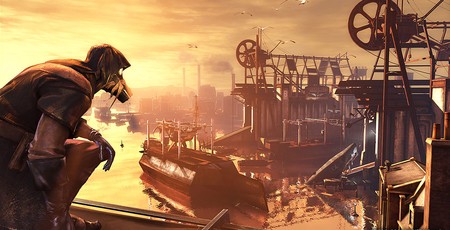
Expansion packs may exist primarily for commercial reasons, so a developer can squeeze a little more money out of an existing audience for a successful game. But a great expansion does more than provide additional playtime for a game that you love. It’ll add something the original game didn’t have, and you didn’t know it needed. It’ll either improve the original experience, or alter your understanding of that game's events or ideas. The very best expansion packs stand up as games in their own right, earning a reputation irrespective of the base game.
Hence, they deserve to be remembered like any other game. So I’m going to run-down what I believe to be the best gaming addons ever created. I use the term “expansion” rather than “DLC”, because not all of the listed games were downloadable when they were first released, but the list obviously includes downloadable content.
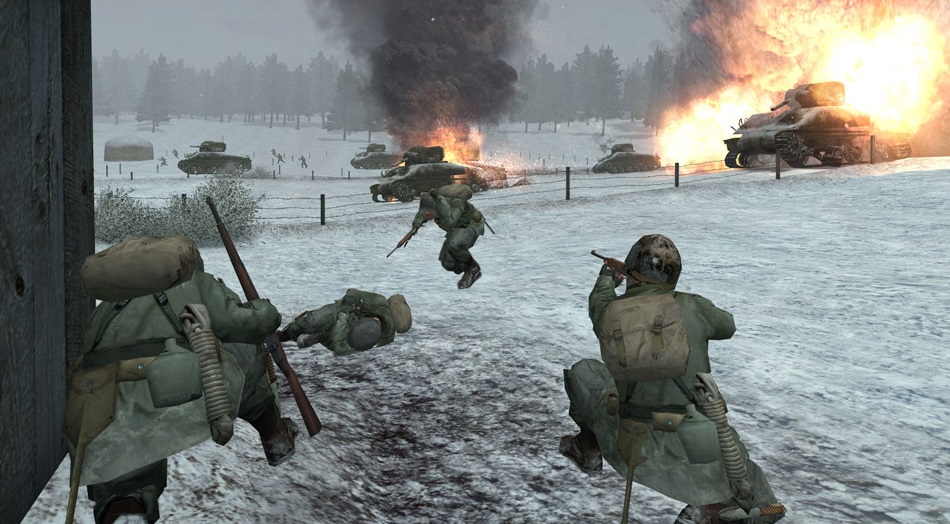
10. Call of Duty: United Offensive
The sole expansion pack for the original Call of Duty, United Offensive has been somewhat forgotten over the last twenty years. Which is a shame, because not only is it one of the best expansions ever made, it also features some of the best action in the entire Call of Duty series.
Where vanilla Call of Duty focussed primarily on the battle for Normandy and the Russian defence of Stalingrad, United Offensive kicks off in the frozen forests of Bastogne. Heavily inspired by Band of Brothers, its opening missions sees you diving for cover in icy foxholes as artillery bursts all around you. Later, you assault snow-covered Belgian villages infested with Wehrmacht soldiers.
The spectacle of United Offensive’s Bastogne sequences remain impressive even today. But as with the original Call of Duty, United Offensive’s scope extends to multiple fronts. As the British, you’ll partake in a bombing raid, manning the turrets of a Lancaster bomber, while the Russian campaign sees you partake in the Battle of Kursk, the largest tank battle in the world history. In this way, United Offensive successfully condenses Call of Duty’s cinematic action into an even more intense package.
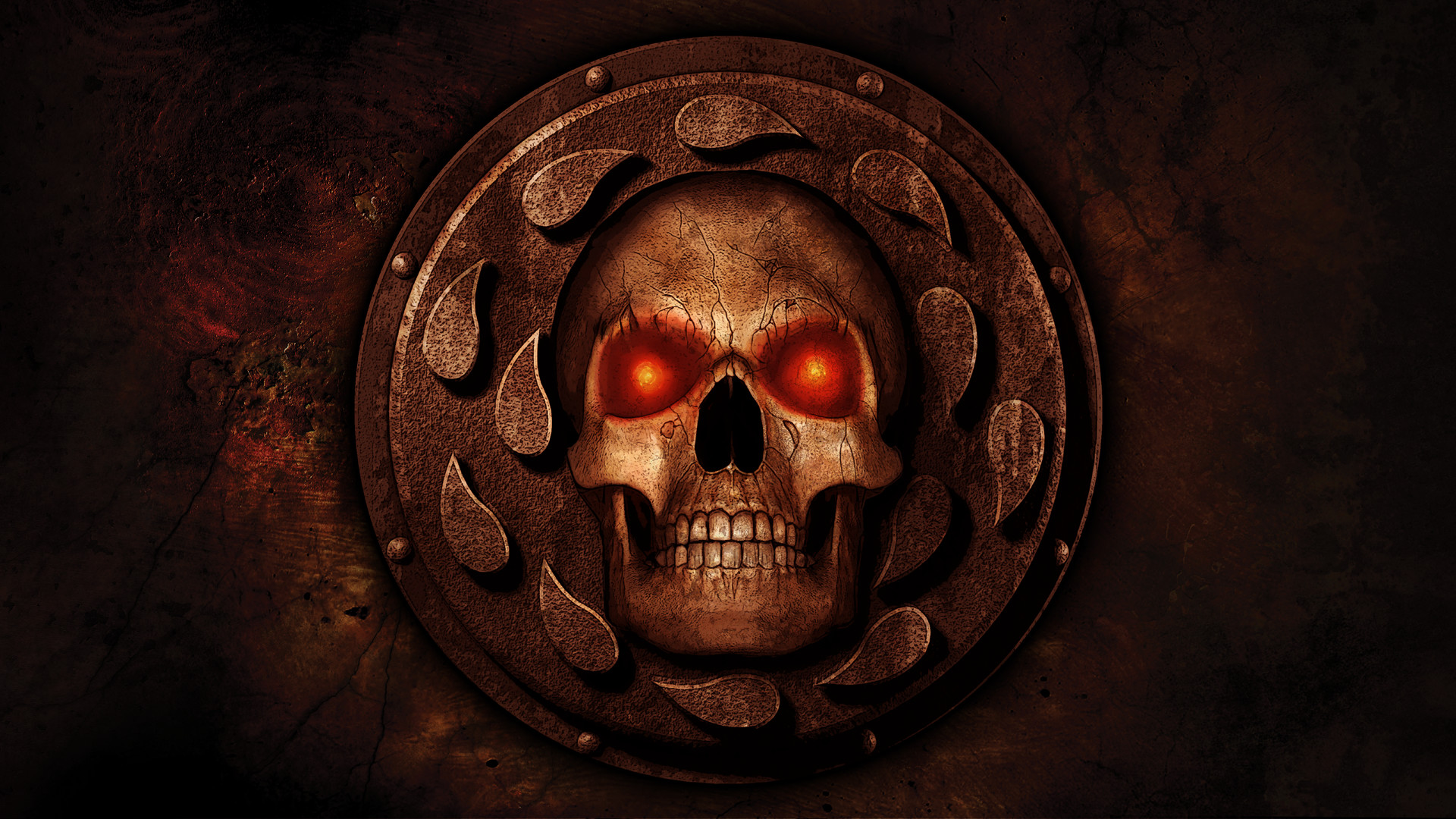
9. Baldur’s Gate II: Throne of Bhaal
Like Mass Effect 3’s Citadel DLC, Baldur’s Gate II’s Throne of Bhaal expansion provides the definitive conclusion to BioWare’s CRPG adventure. Following the events of Shadows of Amn, the realm of Tetyhr is suddenly besieged by five legendary Bhaalspawn. With the aid of a Mage named Melissian, you travel across multiple new locations to slay the five Legendary Bhaalspawn.
Throne of Bhaal adds a bunch of new features to Baldur’s Gate, such as those new locations and the Wild Mage class. But it’s significant mainly for its consequences for the Baldur’s Gate story, with many considering it an essential part of the series right alongside the two main games. Indeed, Baldur’s Gate 3 continues the story after the events of Throne of Bhaal, which gives you some inkling of its wider significance.
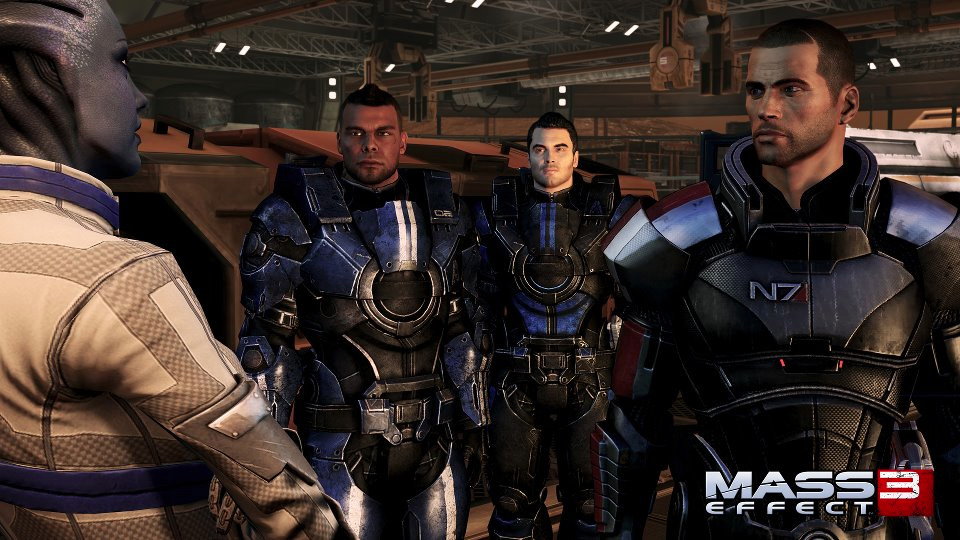
8. Mass Effect 3: Citadel
The Mass Effect series produced several quality DLCs, from the original game’s Bring Down the Sky, to Mass Effect 2’s Lair of the Shadow Broker. But Mass Effect 3’s Citadel DLC is generally regarded as the best of the bunch, and I see no reason to disagree.
Citadel sees Shepard and his crew return to the Council’s home station for retrofits to the Normandy, during which Admiral Anderson provides the crew with a space to recover from their adventures. But after Shepard is attacked by a group of mercenaries, he becomes embroiled in a conspiracy that concerns the entire station.
What results is an expansive and gripping DLC adventure. But what makes Citadel special is how it allows players one last chance to reconnect with your party before the final assault on Earth. It lets you revisit old friendships and rekindle romances, while also allowing several old companions to temporarily rejoin your party, including Miranda, Kasumi, and Wrex.
Given the underwhelming nature of Mass Effect 3’s ending, Citadel is in many ways the true send-off for your party, making it an essential addition to ME3 and the trilogy as a whole.
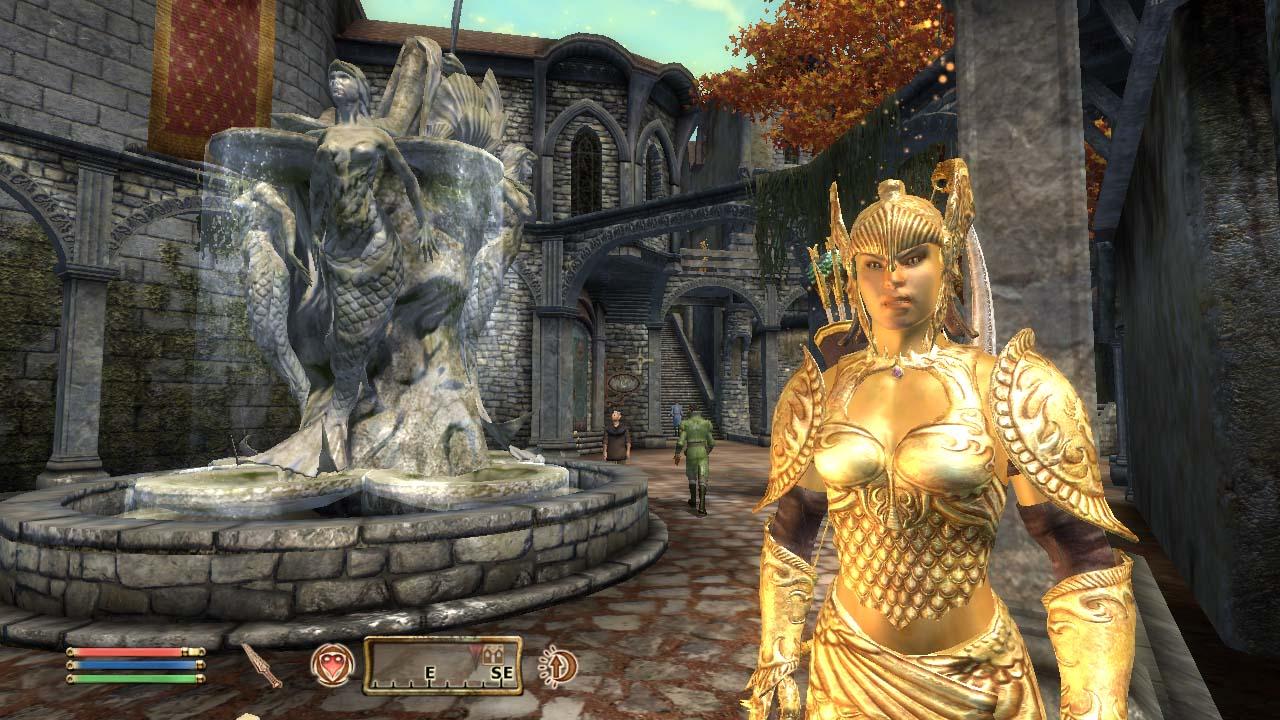
7. The Elder Scrolls IV: Shivering Isles
Oblivion is generally regarded as the most vanilla of the Elder Scrolls games. Its high fantasy world lacks the distinctive and consistent design of Skyrim or the austere strangeness of Morrowind. There’s an argument to be made that this reputation is unfair, but whether the accusation is true or not, what is certain is that Shivering Isles was in many ways a direct response to this criticism.
Shivering Isles transports players to the realm of Sheogorath, The Elder Scrolls’ mad god, where the Hero of Kvatch is tasked with helping to defeat the Greymarch, an apocalyptic event that recurs every few thousand years. Shivering Isles allows Bethesda to embrace its quirkier side. The Isles are split into two distinct landscapes. Mania is bright and colourful and filled with giant mushrooms (the staple of any oddball environment) while Dementia is a darker, more ominous place, a manifestation of the nastier side of Sheogorath’s personality.
In some ways Shivering Isles pushes too far in the other direction to Oblivion, trying a little too hard to be weird. But that doesn't make it any less entertaining to explore. Cheese for everyone!
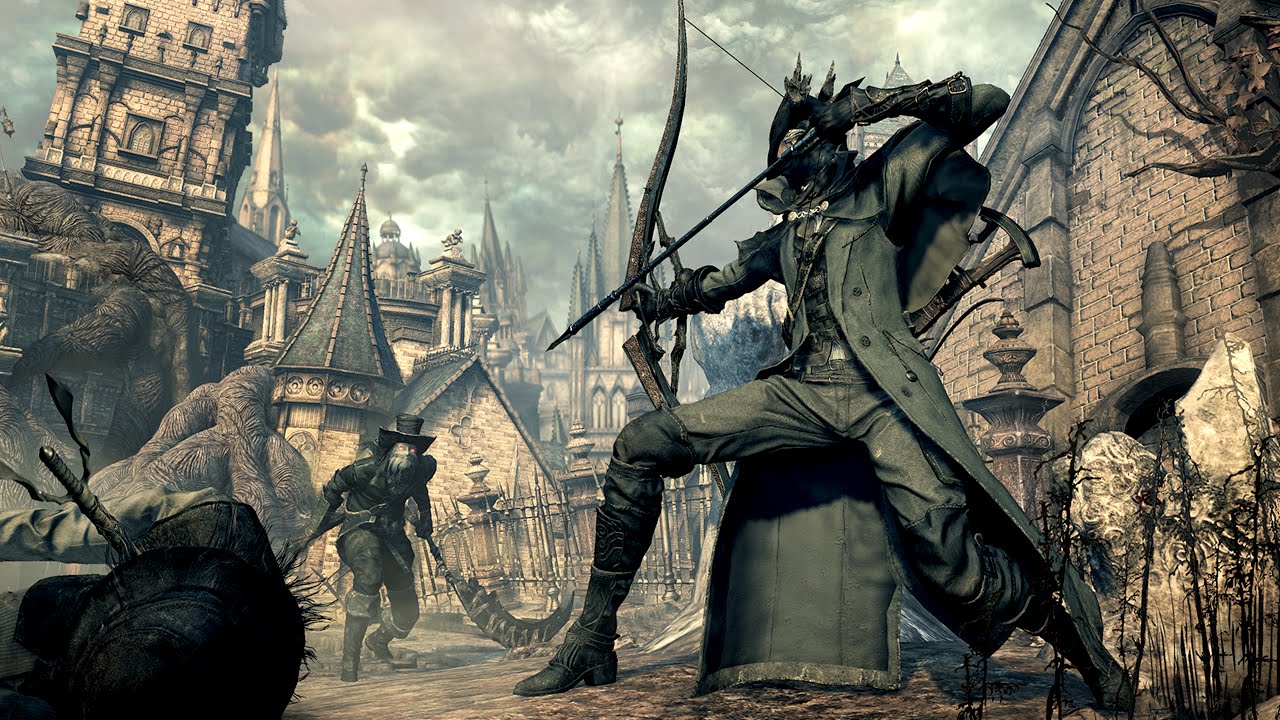
6. Bloodborne: The Old Hunters
From Software’s mastery of the video-game craft is well known, and this includes expansion design. Several of the expansions, such as Dark Souls’ Artorias of the Abyss and Dark Souls II’s Sunken King, could easily have made this list. But of all the additional adventures the studio has created, Bloodborne’s The Old Hunters is probably the best.
The Old Hunters transports players to the Hunter’s Nightmare, a mirror-world to the sanctuary realm of the Hunter’s Dream. The Nightmare is a cursed prison for some of Yharnam’s most legendary figures, figures you’ll have to defeat in Bloodborne’s ferocious combat.
The Old Hunters contains many of Bloodborne’s best moments. Its boss fights, against characters such as Ludwig and Maria, are some of the most spectacular and challenging in the game. The Old Hunters also ups the ante of the game's surrealist horror, taking you to locations such as the Fishing Village, the unassuming name belying the majesty and terror that lurks within From Software’s incredible level design.
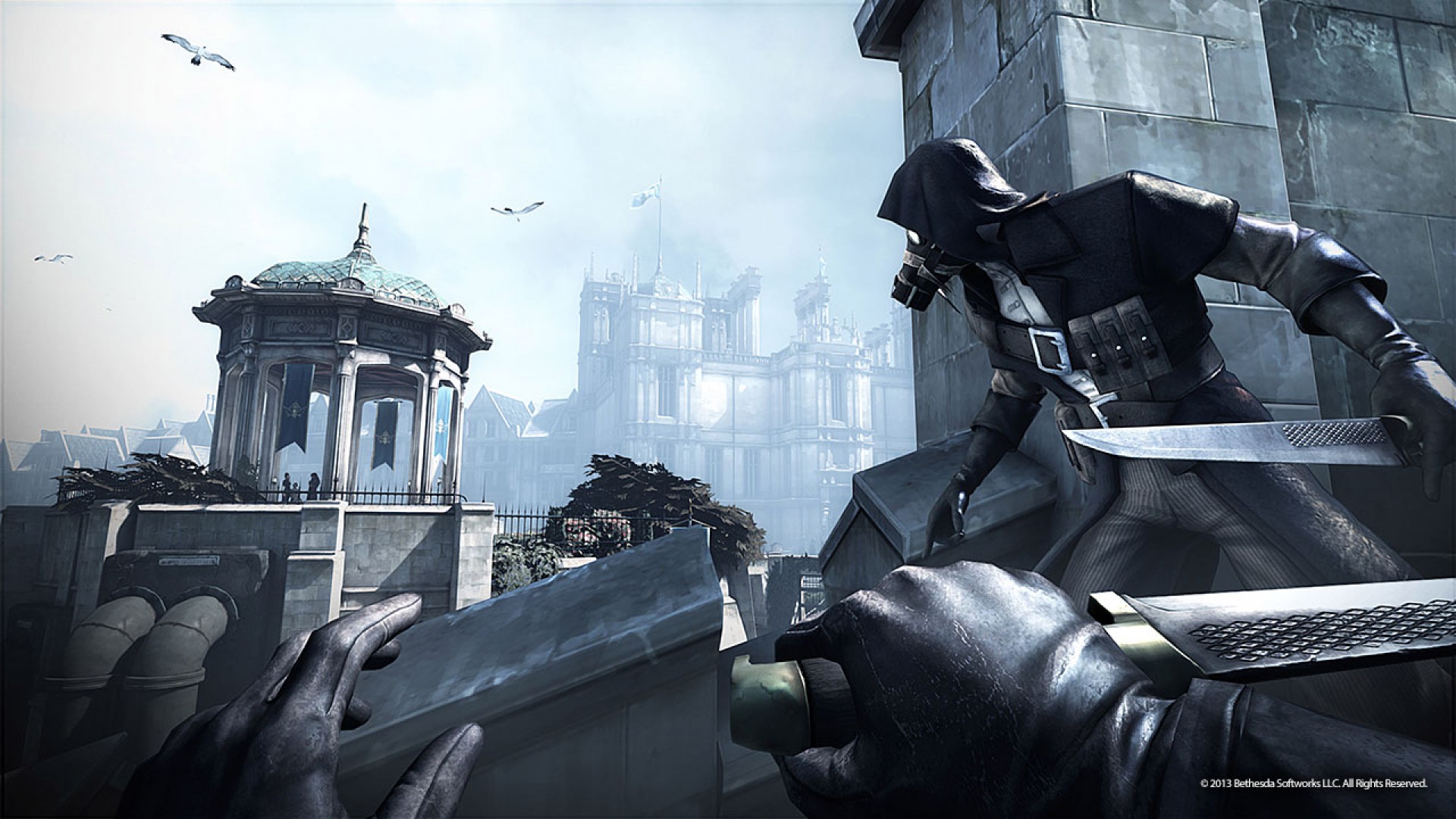
5. Dishonored: The Knife of Dunwall/The Brigmore Witches
While technically two separate DLCs, the Knife of Dunwall and the Brigmore Witches come together to form one story. Putting you in the boots of Daud, the assassin destined to murder the empress, the two DLCs are so expansive they almost amount to a third Dishonored game.
Together, the two DLCs add six new levels into Dishonored. Several of these, such as the Rothwild Slaughterhouse and Brigmore Manor, feature some of the strongest level design across the whole series. The two expansions are also hugely significant in story terms. Not only do they provide insight into one of Dishonored’s most intriguing characters, they also introduce several key characters in Dishonored II, such as Billie Lurk and the witch Delilah.
Both DLCs are an essential part of Dishonored’s story, every bit as good as the original and its sequel.
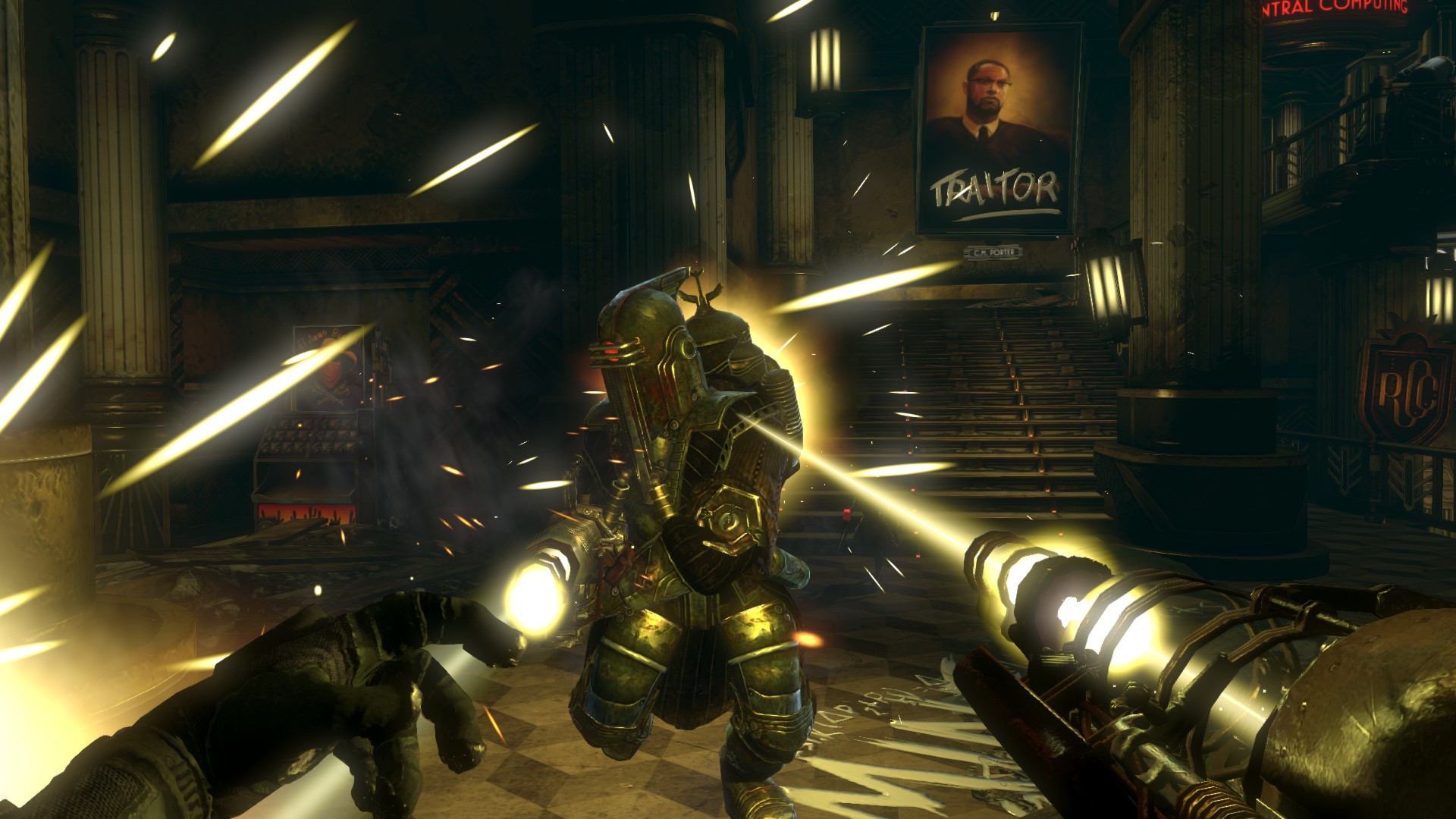
4. Bioshock 2: Minerva’s Den
While generally regarded as a better shooter than Bioshock 1, Bioshock 2 is considered the lesser of the two stories. The exception, of course, is Minerva’s Den, which might just be the best bit of the entire Bioshock series.
A self-contained story, Minerva’s Den focusses on two scientists named Charles Porter and Reed Wahl, who together develop an AI known as the Thinker, which controls Rapture’s automated security. The DLC’s action takes place after Wahl betrays Porter and steals the Thinker, with you playing a Big Daddy named Sigma, activated by Porter to retrieve the Thinker’s code and restore it to its original purpose.
What separates Minerva’s Den from the bigger Bioshock games is its ability to balance personal stories with the grander themes the games tackle. The DLCs spins a compelling tale of grief that ties into notions of free will and predestination. It also has a cracking twist, which is always a boon to a story’s reputation.
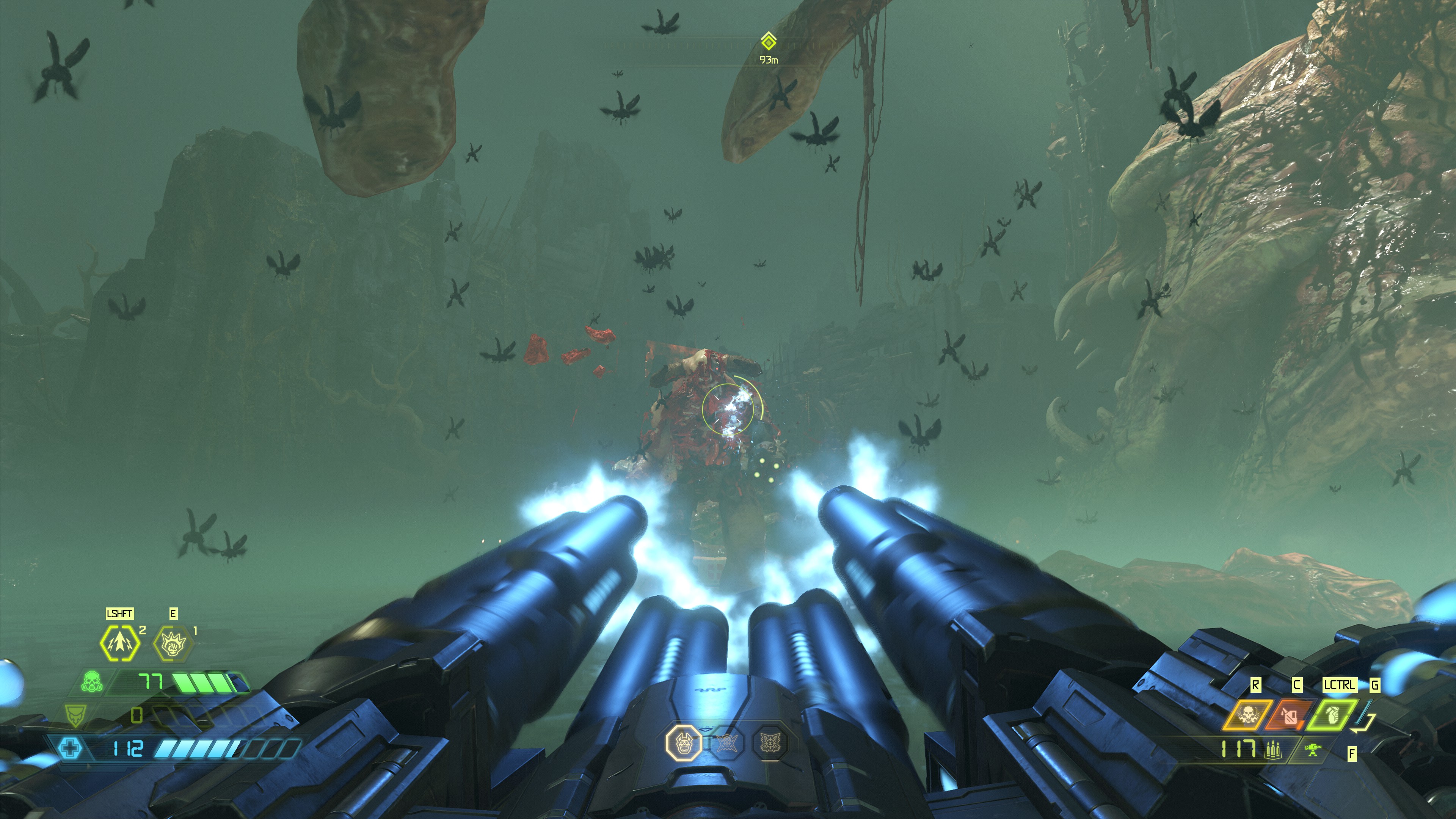
3. Doom Eternal: The Ancient Gods Parts 1 & 2
I enjoyed Doom Eternal when I first played it, but I was unconvinced by some of the creative decisions it made. The greater emphasis on platforming and jumping around, the way it directed you toward specific strategies for dealing with enemies, it all seemed to make the game overly difficult to grapple with, impacting the graceful, gory flow of the 2016 reboot.
Then I played the Ancient Gods Part 1 and understood exactly why Doom Eternal makes the decisions it does, it’s so the developers could build this.
The Ancient Gods represents Doom Eternal at its most intense, most furious, and most rewarding. Part 1 is so ferociously challenging that I’d often be shaking with adrenaline after a session with it, while Part 2 stretches your knowledge of your arsenal in some truly devious and delightful ways.
Together, Doom Eternal’s DLCs represent the pinnacle of FPS combat. More than that, though, they gave me a new appreciation of the vanilla game. I realised that the strategies Doom Eternal suggests to you aren’t designed to force your hand, but to help you become the unstoppable force the game wants you to be. When you master the skillset the game offers you, you can obliterate even the toughest demons in a matter of seconds. It’s that sense of power, which you earn through knowledge of the systems, that makes the game’s action so rewarding.
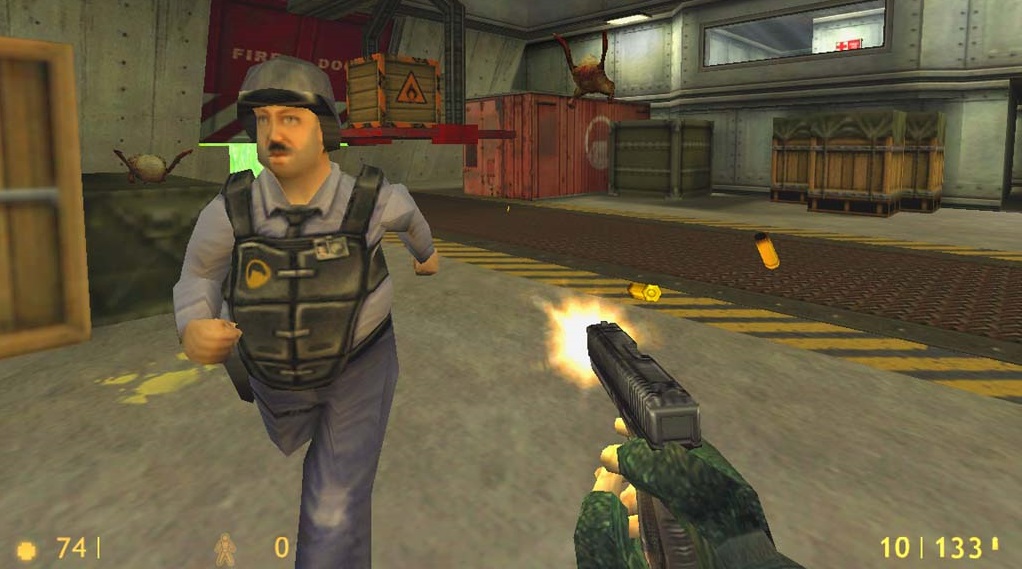
2. Half-Life: Opposing Force
Not only is Half-Life’s first expansion pack almost as long as the vanilla game, in some ways it improves over Valve’s classic FPS. Developed by Gearbox Software, Opposing Force sees you play as Adrian Shephard, one of the Marines dispatched to Black Mesa to contain the emerging disaster, both by quelling the alien invasion, and killing everyone at the facility.
This retelling of the Black Mesa story from an alternate angle already makes Opposing Force a rare specimen among games. Not only does it bring more of the intense action and spectacular set-pieces of Half-Life, as well as showing us the same events from new angles, Opposing Force also expands our understanding of the Half-Life story, revealing to us how one of Half-Life’s primary enemies are just more pawns in a game much bigger than them.
Arriving at Black Mesa as the aggressors, the Marines soon find themselves embroiled in their own crisis. Their failure to contain the disaster results in them also being hunted down by Black Ops Special Forces, dispatched in a second wave of countermeasures. Meanwhile, the arrival of “Race X” further complicates the game’s multidirectional conflict, as well as providing a new range of enemies for the player to fight. In this way, Opposing Force remains one of the most unusual and best expansions around.
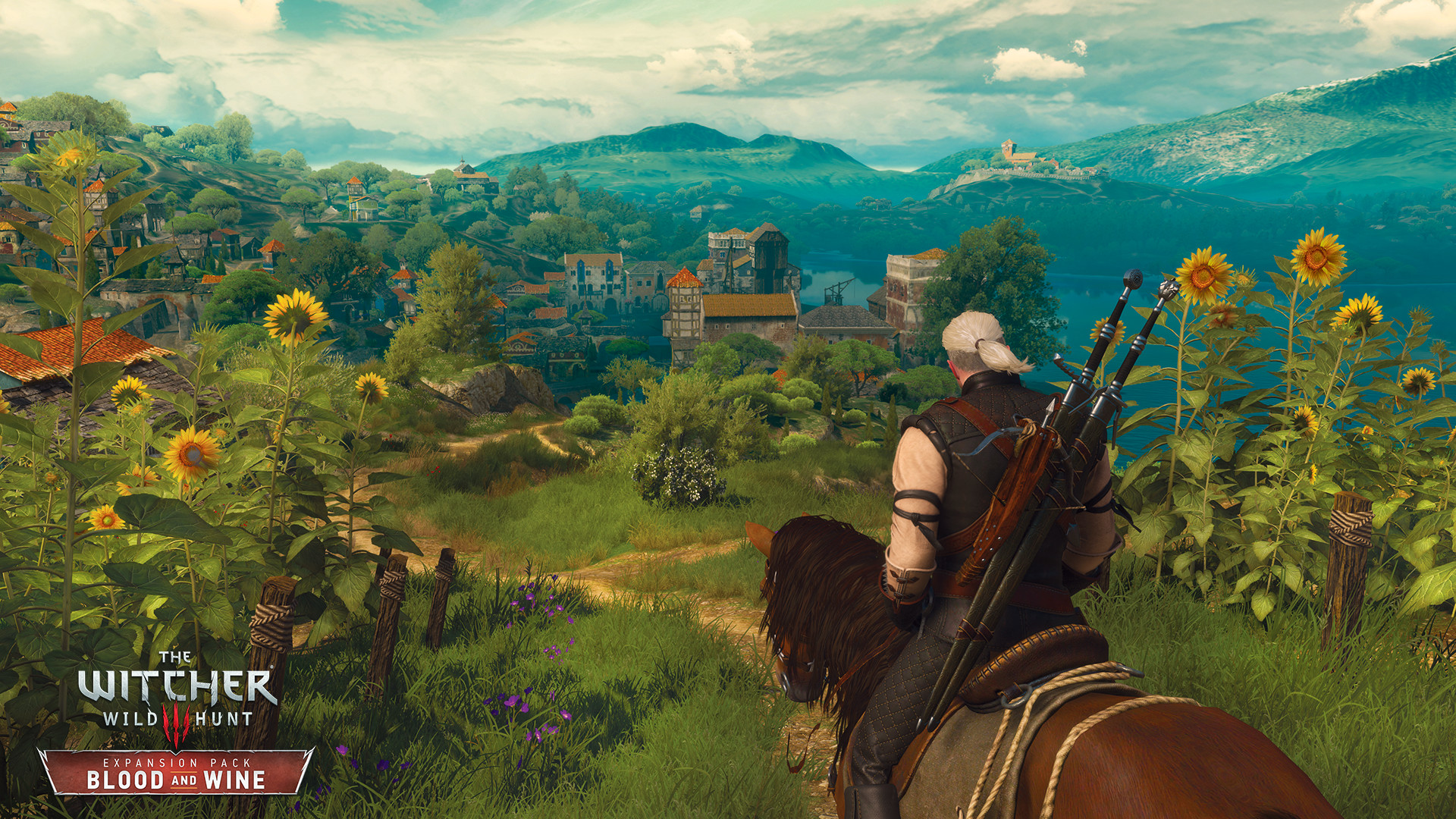
1. The Witcher 3: Blood & Wine
Expansions don’t come more expansive than The Witcher 3’s delightful and thrilling swansong. CD Projekt RED’s final outing with Geralt sees the witcher travel to the glorious countryside of Toussaint, where he’s tasked with hunting down the mysterious Beast of Beauclair, for which he will be rewarded with enough gold to retire from his witchering ways.
Blood & Wine is a truly massive expansion, adding a huge new region and 40+ hours of questing to the base game. What makes it special, however, is the way it melds the dark and subtle storytelling of The Witcher 3 with a joyful atmosphere of celebration and fanfare. The vivid colour-palette of Toussaint, all rolling fields and bright blue skies, conveys a lighter tone that carries through in many of the quests. During his adventures, Geralt has a hallucinogenic chat with his trusty horse Roach, helps reunite a statue with its missing genitals, and even briefly travels into a genuine fairytale kingdom, complete with rainbows and unicorns.
But the lighter tone isn’t without its darker shades. The beast Geralt stalks is one of his most dangerous foes yet, while he also contends with ancient curses and deadly sibling rivalries during his adventure. It also loses none of the heart of the original game, as demonstrated by the rekindling of an old friendship with a being that used to be a foe.
For any other game, a 40-hour send-off would seem like a ludicrous indulgence. But CD Projekt owes much to the Witcher from Rivia, and with The Witcher 3 placing the company at the height of its creative powers, they couldn’t have devised a better send-off.

MSI MPG Velox 100R Chassis Review
October 14 2021 | 15:04






Want to comment? Please log in.